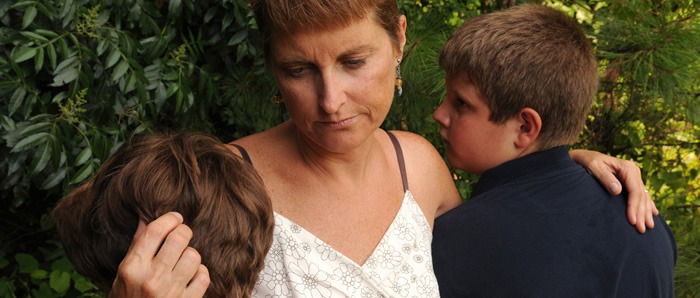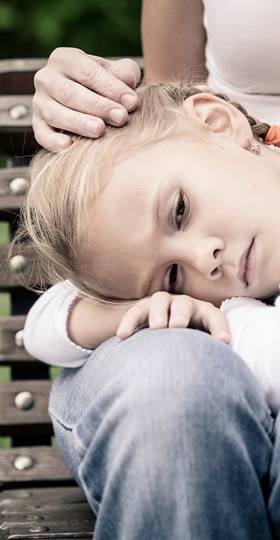Coping with the Death of a Parent
When my parent died, I felt a floodgate of emotions wash over me. I felt emptiness and loneliness inside. I felt that not only had I lost someone dear to me, but I also lost a friend. Looking back, I wish that I had another chance to thank them and to tell them how much they were loved.
There are so many reminders of my parent in my day-to-day life, belongings around the house, memorabilia and photographs. Oftentimes, I am told how much I resemble them. I feel such intense sadness when I think that I can no longer talk to them or see them again.
One of the most difficult tasks for me was going through my parent’s estate, deciding what to do with their belongings. Some of these items brought me comfort and triggered special memories. At times these memories would overwhelm me with feelings of grief.
The death of my parent has also made me realize how precious life can be and how privileged I am to have been their child. As with many other children, my relationship with my parents was filled with challenges and sometimes we did not always agree. Although I recognized that these challenges are natural, I no longer take life “for granted” and value special moments as they occur.

People often “expect” me to be over the death and to carry on. Although I know in my heart that I will be fine, my loss has forever changed me. People do not understand that adult children do grieve the death of a parent, and that they need to go through the grieving process at their own pace. Each person’s grief experience is unique.
It is my hope that my story and my experience of walking through grief will provide you with some level of comfort, understanding and an awareness of the multitude of emotions that you may already be beginning to face in the early days, weeks and months after the death of your loved one.
Your courage in taking the opportunity to read this information is a testament to your ability and internal strength to move forward in your journey through grief.
When a Parent Dies
The death of a parent is a powerful loss that impacts our lives in many ways. One may be an adult but one is always a parent’s child. Even as adult children, we oftentimes experience a sense of abandonment when a parent dies. We also come to realize that, as adults, regardless of our age, we now have to move forward in our lives without the safety and comfort of a parent. Our parents may have lived a very full and rewarding life; however, this fact initially offers us little comfort as we live through the pain of our loss and the longing for what could have been.
 Our relationships with our parents are truly unique and special. Things might have been said or done or avoided that you may regret. You may have tried to please your parent but may have felt that you could “always have done better”. As an adult you have increased stress and commitments not only to yourself but also to your partner, family, friends and work. This discomfort leads to feelings of guilt. These feelings are natural and we may take comfort in the fact that our parent would not want us to be caught up in the guilt but to acknowledge it as we try to move through the journey of grief.
Our relationships with our parents are truly unique and special. Things might have been said or done or avoided that you may regret. You may have tried to please your parent but may have felt that you could “always have done better”. As an adult you have increased stress and commitments not only to yourself but also to your partner, family, friends and work. This discomfort leads to feelings of guilt. These feelings are natural and we may take comfort in the fact that our parent would not want us to be caught up in the guilt but to acknowledge it as we try to move through the journey of grief.
Your Grief is Unique
The death of a parent may bring up a host of mixed feelings ranging from relief (if there was illness) to anger (if the death was sudden and unexpected) to feelings of guilt (if we wish we could have done things differently). Oftentimes our feelings of grief depend on our recent and past relationship with our loved one and whether we feel that all issues have been resolved. It is also natural to find our emotions to be all tangled together and confusing.
The relationship between a parent and child, regardless of age, is unparalleled. Cultural and spiritual beliefs, our relationship with our parent and how we view the world itself all affect the way in which we grieve. There is no timetable or “right” way to grieve. As a bereaved child, you have the right to think, feel and express your grief, and no one, regardless of their “good” intentions, has the right to minimize your feelings or tell you how you “should” be.
The Grief Journey
My mind seems to be filled with thoughts of my parent, conversations we have had and all the “if only’s”. Sometimes I have trouble sleeping and waken several times throughout the night. Other times it takes all my energy just to get up in the morning. My appetite has changed, as has my concentration.
Grief is a process or a passage and it takes time to understand and move through it. The relationship that we shared with our parent has enriched us with experiences and memories from childhood and adult life that we will carry with us. The intensity of these emotions may affect how we feel physically and emotionally. Fatigue, sleeplessness, loss of appetite and restlessness are all common and natural reactions to the death of a loved one.

Taking Care of Yourself
Some days I just wanted to be by myself and not talk to anyone. I would go for long walks or drives to try to clear the fog from my head. Nothing seemed to give me comfort.
Although there is no set answer for how long you will feel this way, try to take each day one day at a time. Try to do one good thing for yourself each day that you found enjoyable and peaceful before your parent died. Listen to your body and rest when you need to. Eat balanced meals. Lower your expectations and defences for a while and rely on the support and caring of others. Remove the word “should” from your vocabulary. Try to accept your limitations during this difficult time. Only you know yourself well enough to do whatever you need to deal with the intense loss that you have sustained. Have confidence in yourself that, in time, you will return to the activities of daily living that you participated in before your parent’s death.
Reaching Out
I could talk to one of my friends who has also had a parent die. We would laugh and share tears of sorrow and happiness in recalling memories of our parents. It was comforting to be with someone who seemed to “know” what I was going through.
Our family and friends will try to comfort us in ways that we do not always feel comfortable with. They need to know what they can do to help us. It is important to try to tell people what our needs and wishes are. These requests will let them know how they may help us in a specific way. The warmth and support of comforting friends and family is a precious gift. With such close supports we do not have to walk the grief journey alone.

By relating memories and stories of your parent with others that listen, you are sharing your feelings. By mentioning the name and talking about your mother or father, others will know that it is okay and will also in time start to feel more comfortable in mentioning your parent. Repeating your story and revealing your thoughts openly may assist you through your grief journey.
Holidays and Special Occasions
Memories flooded back to special times growing up. There are certain events that I will always hold close to my heart. Holidays and family exist hand in hand and it is difficult to think of one without the other. These special times mean so much to me now. As with other families, we had customs and traditions, some of which I have chosen to carry on. In the beginning, the holiday periods were especially difficult for me; my loss seemed ever so real on these special occasions.
 These special and festive times are, for many people, extremely painful. Traditions change and holidays may not be the same again. Others need to understand that you may have a difficult time during the holidays. Let them know that you appreciate the warmth and understanding and that you will participate depending on how you are feeling that day.
These special and festive times are, for many people, extremely painful. Traditions change and holidays may not be the same again. Others need to understand that you may have a difficult time during the holidays. Let them know that you appreciate the warmth and understanding and that you will participate depending on how you are feeling that day.
Celebrating the Life of Your Parent
When my parent died, I decided to commemorate their life in a special place that I know they loved. Every time I walk past or visit this place, this is my special connection with my parent. I often go there to share my thoughts and feelings about events in my life. Somehow, this allows me to feel connected to them, even in death.
There are many ways in which we may choose to celebrate the lives of our parents. Some options are photo albums and written accounts of your parent’s life to pass on to future generations. Other options are planting trees, a garden of perennials, sponsoring a bench in a park, writing a poem or helping others through their grief.
It takes courage, inner strength, the love of family and friends and the special memories of your parent to journey through grief and into healing.
The journey is truly your own…

